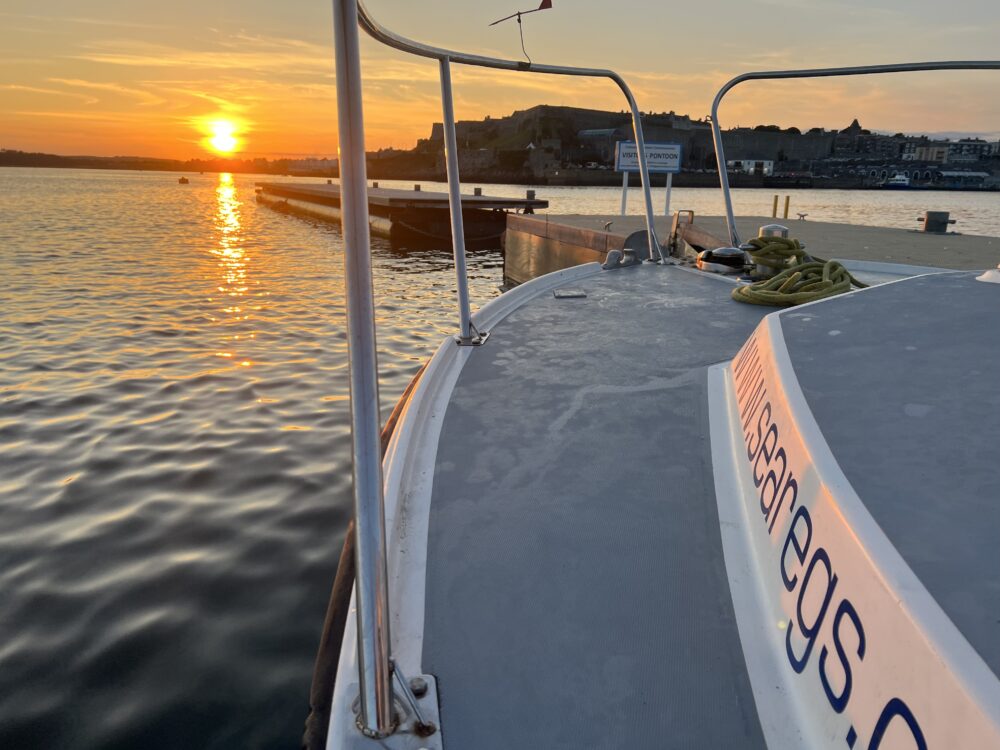A marine training provider has been awarded top marks by Ofsted after inspectors witnessed apprentices filling the skills gaps left by an “ageing workforce”.
Plymouth-based SeaRegs Training was handed an ‘outstanding’ rating today following its first ever full Ofsted inspection.
The watchdog heaped praise on the provider’s success in its highly ambitious curriculums and “carefully considered” pathways to accelerate apprentices’ knowledge and progress.
As a result, “almost all” apprentices complete their studies and obtain a “comprehensive” suite of qualifications to develop careers in the marine industry with their employers.
Ofsted said: “Highly skilled mariners are in great demand in both the public and private sectors. Searegs’ leaders work skilfully with employers to teach apprentices the skills they need to fill the skills gaps left by an ageing workforce.”
At the time of the April 30 to May 2 inspection, SeaRegs had 33 apprentices on the level 3 small commercial vessel (crewmember) apprenticeship and 20 apprentices studying the level 3 boatmaster apprenticeship.
Eight apprentices were aged under 19 during the inspection. Simon Jinks, director of SeaRegs Training, told FE Week that the provider attracts apprentices of all ages from 16 to 56 by sponsoring local football teams and talking to local sailing clubs.
Jinks, who runs the ITP with wife Vicky, said although it was their first Ofsted inspection, they were used to being inspected every six or seven weeks by a number of accredited regulators.
“We were delighted,” he said, reacting to the Ofsted outcome.
“Realistically, I can’t thank the staff [enough]. As a training centre, we are as good as the teachers that are teaching for us and the staff who are backing it up with making sure that the paperwork and the processes are there.”
Ofsted was impressed by the “highly valuable” curriculum taught by instructors, who give apprentices additional learning options such as extra yachtmaster skills so they can further their knowledge.
“This prepares apprentices well for future job opportunities that interest them,” inspectors said.
The report commended teachers for their “well-honed” expertise which they apply to their own practice, which makes apprentices learn the context and potential dangers of working on maritime vessels.
The report also found that leaders worked “expertly well” with employers to plan and shape the curriculum so apprentices learn about the wide range of employers and vessels in the maritime industry.
One example is the adaptation of the curriculum for both motor and sail-powered vessels so that apprentices can specialise in either discipline, which Ofsted said “widens the opportunities” when apprentices complete their studies.
Jinks said: “We’ve put in a lot of time with employer and trade associations who have been responsibility for putting the apprenticeships together.
“We try and future-proof the apprentices because it’s a very certificate-led industry. When they do come out into industry, often we’ve found they’re the most qualified people in their organisation.”
Inspectors also spotted this and noted in their report that that apprentices achieve “a comprehensive suite” of industry-recognised qualifications throughout their apprenticeship.
This suite includes safety and survival qualifications needed before any mariner can work.
The report added: “Almost all apprentices complete their studies and all who remain on the programme pass their final assessments. Most remain with their employers and continue to develop their careers in the industry by undertaking further training.”
Jinks said his next plan for SeaRegs was to focus on recruitment and training staff.
“Let’s not go running and jumping to try and rule the world. Just consolidate and make sure that what we’re doing, we’re doing well,” he added.
















Your thoughts